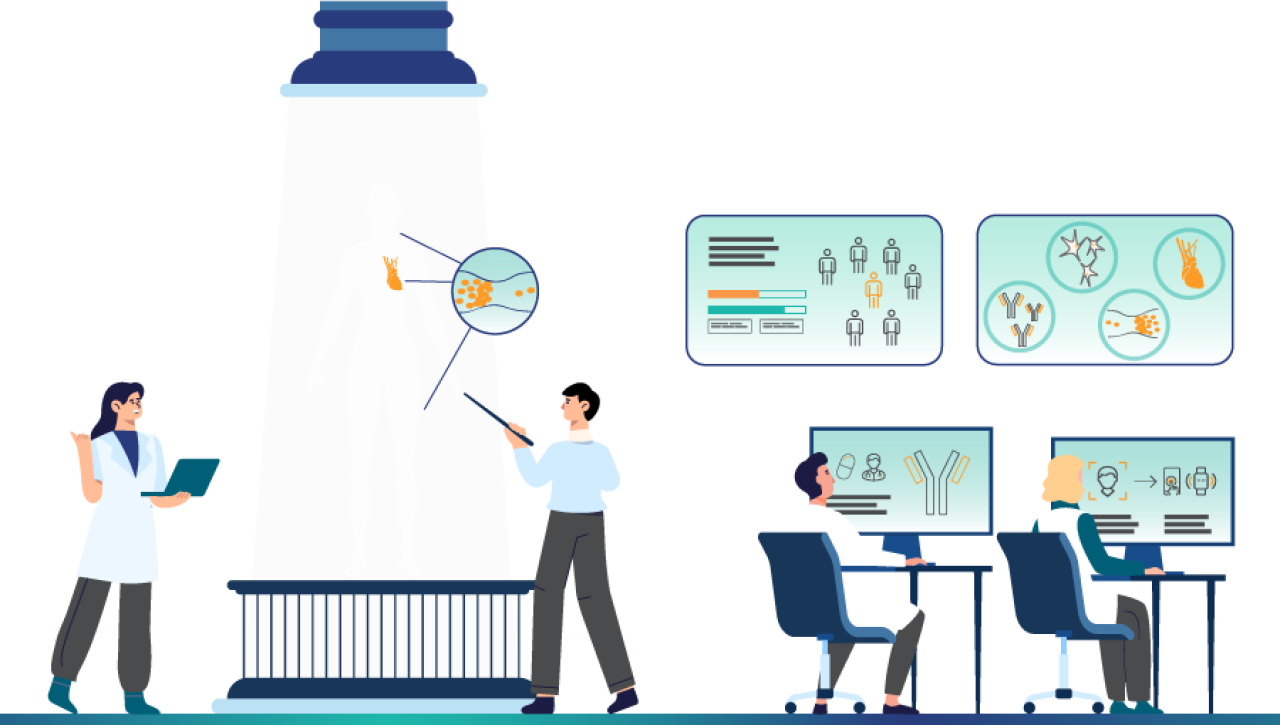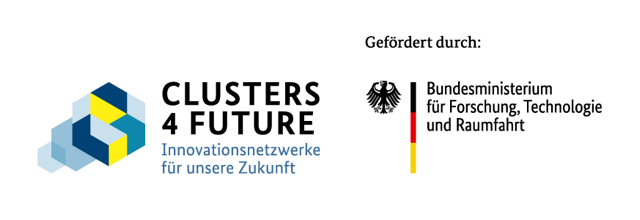The innovation field curATreat focuses on the development of innovative pharmacological interventions. The projects which fall under this this category make a significant contribution to the development of RNA-based applications, which are developed on the basis of the biomarker structures identified in curAIdent. In addition, these will be tested in clinical trials in the subsequent stages
P6 curAIntervent - Locoregional RNA immunotherapy of atherothrombosis
Within the framework of curAIntervent, the preclinical foundation for innovative therapy options against atherothrombosis will be developed by using the RNA technology established in TRON. This will create the basis for industrial drug development. We want to achieve this goal together with our industrial partner, resano GmbH, which is aimed towards the implementation of clinical studies. The use of nanoparticle-formulated, systemically applied RNA is in the foreground here. Through the cooperation with the group of Prof. Lutz Nuhn (University of Würzburg), the respective nanoparticle formulation is going to be developed making targeted therapies against atherothrombosis possible. Potential target structures will be identified by applying methods from artificial intelligence to multi-omics data from large clinical cohorts together with population-based studies of our partner, University Medical Center Mainz. The focus is placed here on target structures that are clinically relevant and accessible to drug therapy.
 Dr. Johnny Kim
Dr. Johnny Kim
Coordinator curAIntervent
TRON gGmbH
[javascript protected email address]
P7 megATarget - Megakaryocyte targeting for the generation of reparative thrombocytes
Cardiovascular diseases cause one third of all deaths worldwide. Among these, atherothrombosis is the main cause of heart attack and stroke. Here, part of a thickened, fatty blood vessel wall detaches and the resulting blood clot can lead to vessel occlusion and sudden interruption of the blood supply. Despite advances in the treatment of atherothrombosis, vascular occlusion continues to occur even within optimized therapies.
The aim of this project is to develop a novel therapeutic approach that specifically addresses the interplay of blood coagulation and inflammatory processes in atherothrombosis. Various thrombocyte functions play a central role in this. Together with our project partners, we want to reprogram precursors of thrombocytes in the bone marrow (megakaryocytes) using nucleic acid-based agents for the generation of therapeutically effective thrombocytes. Therefore, the first phase of the project is aimed at the establishment of techniques for the optimization of the packaging and specificity of the active substances our project partners. We further want to design and synthesize new nucleic acid-based active substances and investigate their efficacy.
 Jun.-Prof. Dr. Carsten Deppermann
Jun.-Prof. Dr. Carsten Deppermann
Coordinator megATarget
Juniorprofessor for Systemic Interactions of Hemostasis, Center for Thrombosis and Hemostasis, University Medical Center Mainz
[javascript protected email address]
P8 heartATech - Monocyte-macrophage reprogramming for the prevention of ischaemic heart failure after myocardial infarction
heartATech addresses monocyte-macrophage reprogramming to prevent ischemic heart failure (IHF) after myocardial infarction (MI) using synthesized mRNA with Lipoplex formulation.
Monocytes are addressable in cardiac remodeling by synthesized mRNA with Lipoplex formulation and can act as a therapeutic shuttle to prevent the development of IHF. Ribotherapeutics can thus address appropriate signaling pathways in a tissue-specific manner to achieve low side-effect, efficient immunomodulatory therapy after MI. We aim to investigate the role of coagulation proteases and their receptors in monocyte-macrophage driven cardiac remodeling after MI. These functions are essential for mediating excessive cardiac fibrosis. We plan to study mice lacking the acid-sensing receptors, thus preventing reprogramming of proinflammatory cells toward tissue-repairing cells. Both receptors may be addressable targets to attenuate cardiac and vascular dysfunction in IHF.
Prof. Dr. med. Philip Wenzel
Coordinator heartATech
Deputy Director Centrer for Cardiology I, Director Heart Failure Unit HFUZ037, Center for Thrombosis and Hemostasis, University Medical Center Mainz
[javascript protected email address]
P9 endoTArget - Development of therapeutic strategies in autoimmune thrombosis
The goal of endoTArget is to develop therapeutic strategies in autoimmune thrombosis.
Autoimmune diseases lead to cardiovascular complications and thrombosis especially in the antiphospholipid syndrome. The discovery of the pathogenic target for antiphospholipid antibodies (aPL) opens new therapeutic approaches for thrombo-inflammatory diseases. The association of aPL with severe progression in COVID-19 and evidence of vascular bed-specific uptake of SARS-CoV-2 virus suggest overlapping mechanisms of autoimmune disease and viral infection in thrombo-inflammatory endothelial dysfunction. This project will characterize these prothrombotic mechanisms in endothelial cells, elucidate the repertoire of autoantibodies with respect to endothelial targets using an innovative biomarker platform, and define the endothelium-protective effects of targeted preclinical intervention in prothrombotic autoimmune mechanisms.
 Univ.-Prof. Dr. Wolfram Ruf
Univ.-Prof. Dr. Wolfram Ruf
Coordinator endoTArget
Scientific Director Center for Thrombosis and Hemostasis, University Medical Center Mainz
[javascript protected email address]


